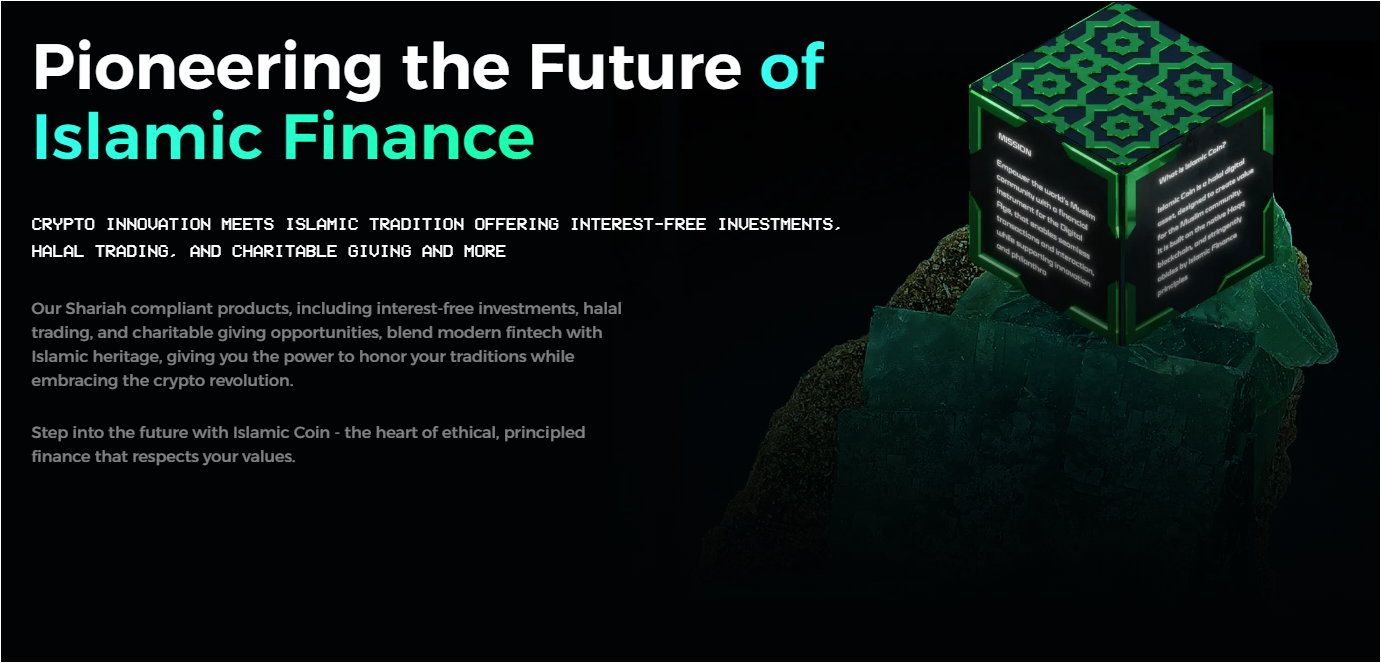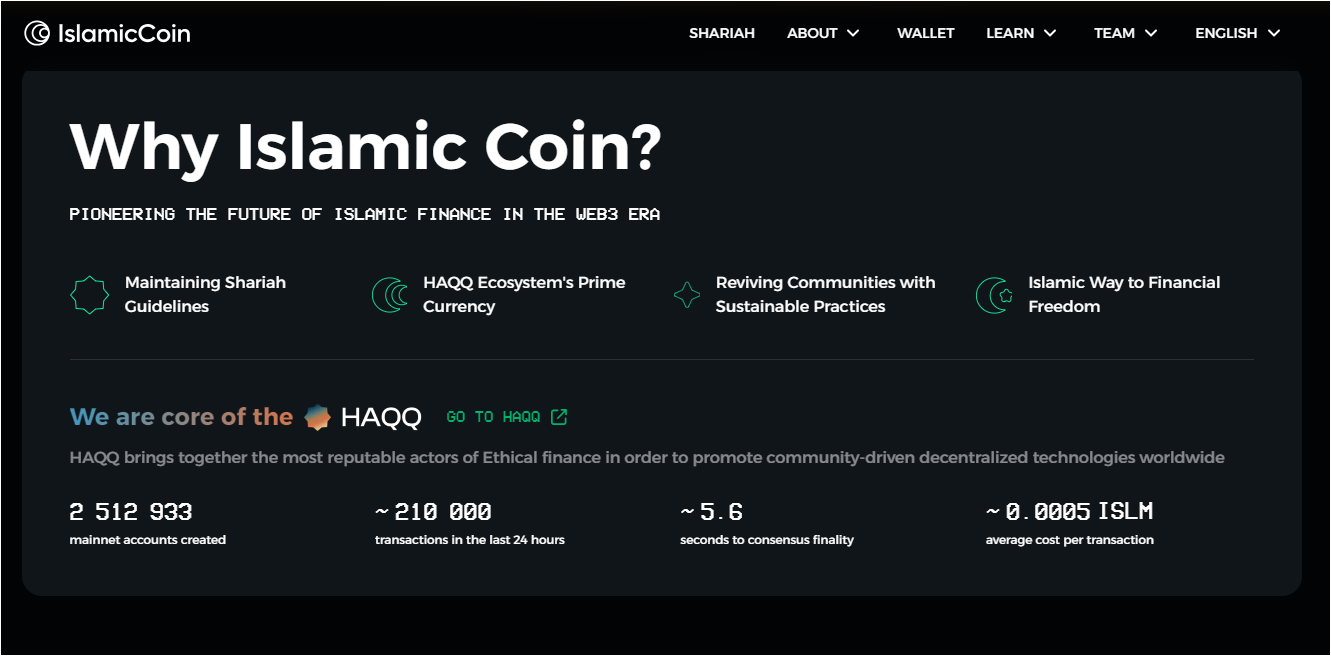Islamic Coins: Bridging the Gap Between Art and
History
Your Gateway to Shariah Compliant Web3
Islamic Coin the mission to onboard over 1.8+ billion Muslims into digital finance without compromising the values and faith. Islamic coin is the native currency of HAQQ, an ethics first, scalable andinteroperable blockchain built on Proof-of-Stake with fast finality.
Introduction to Islamic Coins
Islamic coins, also known as Islamic numismatics, are a unique form of currency with a history dating back over a millennium. These coins bear intricate designs, inscriptions, and artistic details that provide valuable insights into Islamic history and culture.
The Birth of Islamic Coins
The history of Islamic coins begins with the advent of Islam in the 7th century CE. Prior to this, various coins from neighboring empires were in circulation in the Arabian Peninsula. However, with the establishment of the Islamic caliphates, a new form of currency emerged.
The First Islamic Coins
The first Islamic coins were introduced during the Caliphate of Umayyad. These early coins featured inscriptions from the Quran and the names of the caliphs, making them not only a means of exchange but also a form of religious expression.
Artistic Evolution of Islamic Coins
Over the centuries, Islamic coins underwent a remarkable transformation in terms of art and design. Different caliphates and dynasties added their unique flair to these coins, resulting in a rich tapestry of numismatic artistry.
Geometric Patterns and Calligraphy
Islamic coins are renowned for their exquisite calligraphy and intricate geometric patterns. These designs often feature verses from the Quran and the names of rulers, creating a fusion of religious and political symbolism.
Influence of Persian and Byzantine Art
Islamic coinage was also influenced by the artistic traditions of the Persian and Byzantine empires. This cross-cultural exchange is evident in the depictions of animals, human figures, and mythical creatures on some coins.
The Role of Islamic Coins
Islamic coins served not only as a medium of exchange but also played a significant role in spreading Islamic culture and ideology.
Silk Road Trade
The Silk Road, a vast network of trade routes connecting Asia, Europe, and Africa, facilitated the exchange of Islamic coins. This helped disseminate Islamic culture and knowledge to distant lands.
Promoting Unity
Islamic coins often featured inscriptions proclaiming the
oneness of God and the authority of the caliphs. This promoted unity among
diverse populations under Islamic rule.
The Legacy of Islamic Coins
The influence of Islamic coins extends far beyond their historical context. These numismatic treasures continue to be a source of fascination and study for historians, collectors, and enthusiasts worldwide.
Collecting Islamic Coins
Today, Islamic coins are highly sought after by numismatists and collectors. Their rarity and historical significance make them prized additions to coin collections.
Preserving Islamic Coin Heritage
Efforts are underway to preserve and document Islamic coinage. Museums and institutions play a crucial role in safeguarding these valuable artifacts for future generations.
Conclusion
In conclusion, Islamic coins are not just currency; they are a testament to the rich history, culture, and artistry of the Islamic world. These coins have survived centuries, carrying with them the stories of empires, rulers, and the enduring legacy of Islam.
Frequently Asked Questions
1.
Are Islamic coins still in circulation
today?
Islamic coins, as historical artifacts, are no longer used as currency in contemporary times.
2.
Where can I view a collection of Islamic
coins? Many museums and specialized numismatic institutions
around the world have extensive collections of Islamic coins on display.
3.
What is the most valuable Islamic coin
ever discovered?
The value of Islamic coins can vary greatly depending on factors such as rarity and historical significance. Some coins have fetched significant sums at auctions.
4.
Can I start collecting Islamic coins as a
hobby?
Absolutely! Collecting Islamic coins can be a rewarding and educational hobby. Start by researching and learning about the different types of coins and their historical contexts.
5.
How can I learn more about the history of
Islamic coins?
There are numerous books, online resources, and academic courses dedicated to Islamic numismatics that can help you delve deeper into this fascinating field.



